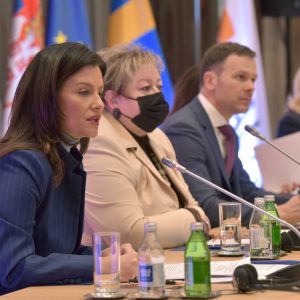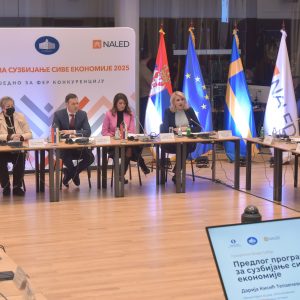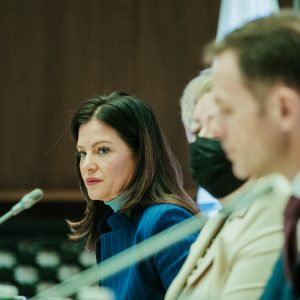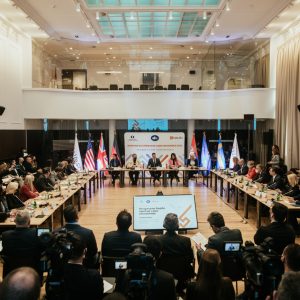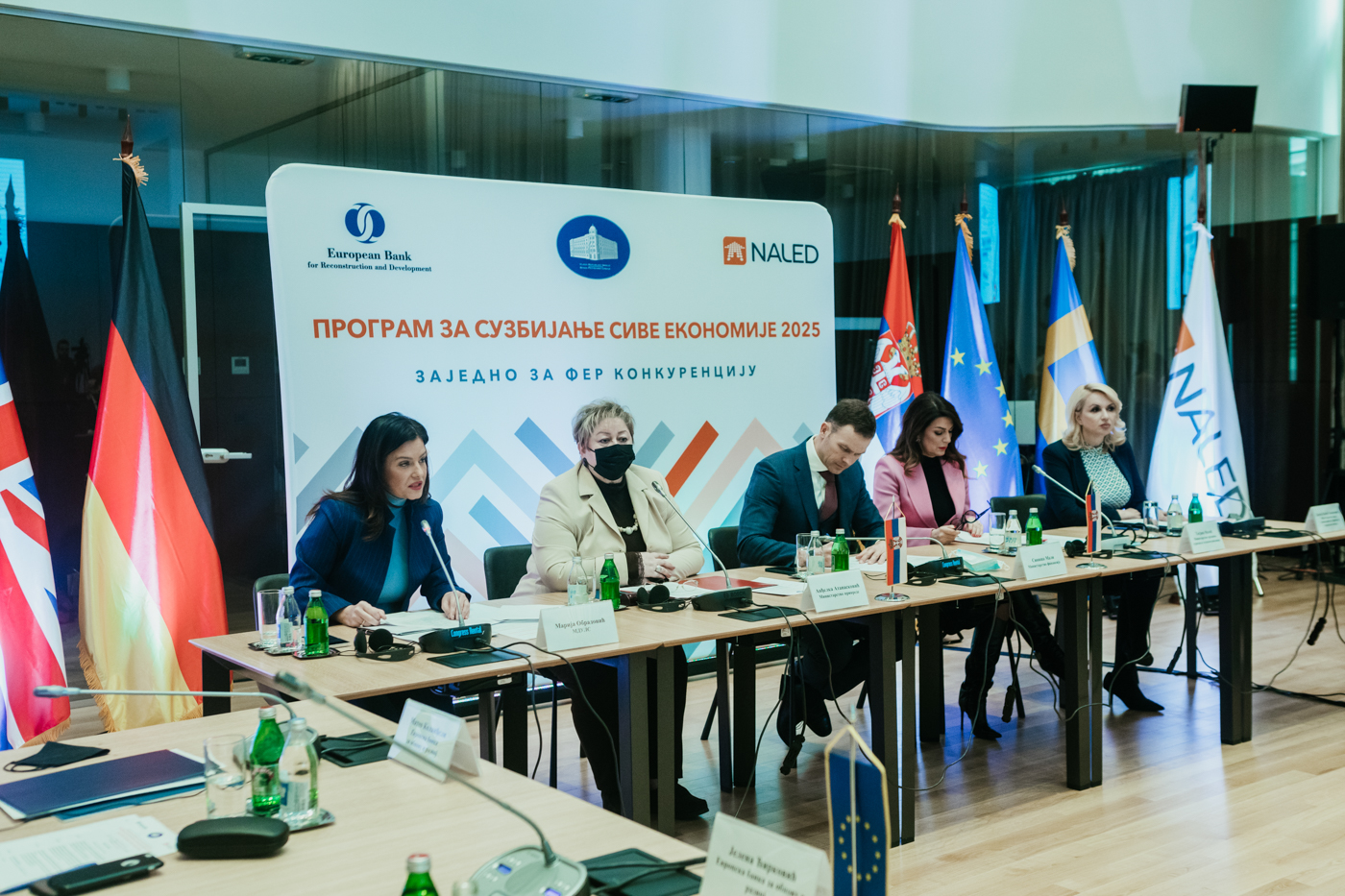
“We have shown great commitment in the fight against the grey economy. We will continue to work intensively on the reform of inspections in the coming period, especially on digitization of inspection supervision, raising the capacities of inspections and strengthening the legal position of inspectors, but also on developing new tools for permanent dialogue with the economy,” the Minister of Public Administration and Local Self-Government has said at today’s Extended Session of the Coordination Body for the Suppression of Grey Economy, titled “Programme for the Suppression of Grey Economy 2025: Together for fair competition.”
Minister Obradović has recalled that MDULS is in charge of activities related to more efficient supervision over the grey economy, i.e. for coordination of inspections in the fight against the grey economy, as well as for complete reform of the inspection system in the country.
She has pointed out that the five-year cooperation on the reform of inspections with the partners in the programme, especially with the EBRD, has thus far yielded significant results, as evidenced by the satisfaction of the economy in almost all conducted surveys.
“MDULS continues to conduct the reform of the inspection system with its own funds, which, I dare say, are modest at best, so the support of the donor community is welcome. The results which have been achieved so far are not minuscule, and in this mandate I personally, as the line minister, gave ‘wind at the back’ to this reform, because this process must not stop,” Obradović has said.
Speaking about the work of inspections, the Minister of Public Administration and Local Self-Government has especially referred to the contribution of inspections in the fight for applying measures against COVID-19 pandemic, emphasizing that inspections, through systematic coordination at all levels, have managed to ensure the application of anti-pandemic measures, i.e. to preserve public health on one hand, and on the other, which was a priority but also presented a challenge, to enable the maximum level of economic activity.
“In the most difficult moments, uninterrupted communication with the economy was achieved and COVID-19 Info Centre for Economy was established, through which the economy received real-time responses to every question related to the application of anti-pandemic measures. This is a great contribution, first of all, to the economic advantage of the country, but also to the fight against the grey economy, because inspections, especially in the first phase of the pandemic, managed to completely prevent the development of the black market for medical equipment and basic foodstuffs,” Obradović has said.
Concluding the presentation, Obradović has reiterated that MDULS continues to work dedicatedly on the reform of inspections in Serbia, improving the position of inspectors and introducing the title of inspector, and used this opportunity to invite the colleagues from the Government to give consent in their departments for the hiring of new inspectors, to the extent to which the state budget can support such employment.
Today’s Extended Session of the Coordination Body for the Suppression of Grey Economy, which discussed the new Programme for Suppression of Gray Economy, has been organized by the Ministry of Finance and NALED, with the support of the EBRD. The public hearing on the Proposal of the Programme for Suppression of Gray Economy 2022-2025 shall last until 28 February of this year, and the participants have agreed that we are one step closer to adopting a strategic document which shall systematically address the issues of fair competition in Serbia.
Photo and video gallery – source: MDULS and Tanjug
Izjava Obradović – inspekcije su u prvoj fazi pandemije uspele potpuno da spreče crno tržište medicinskom opremom i hranom – izvor Tanjug




